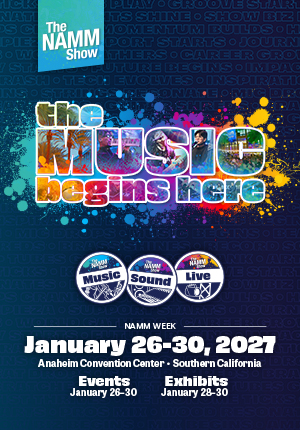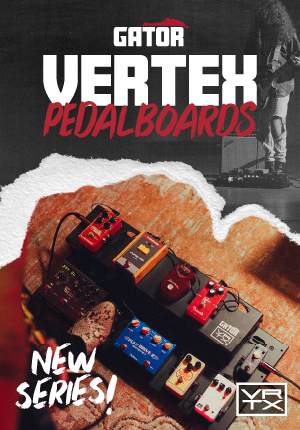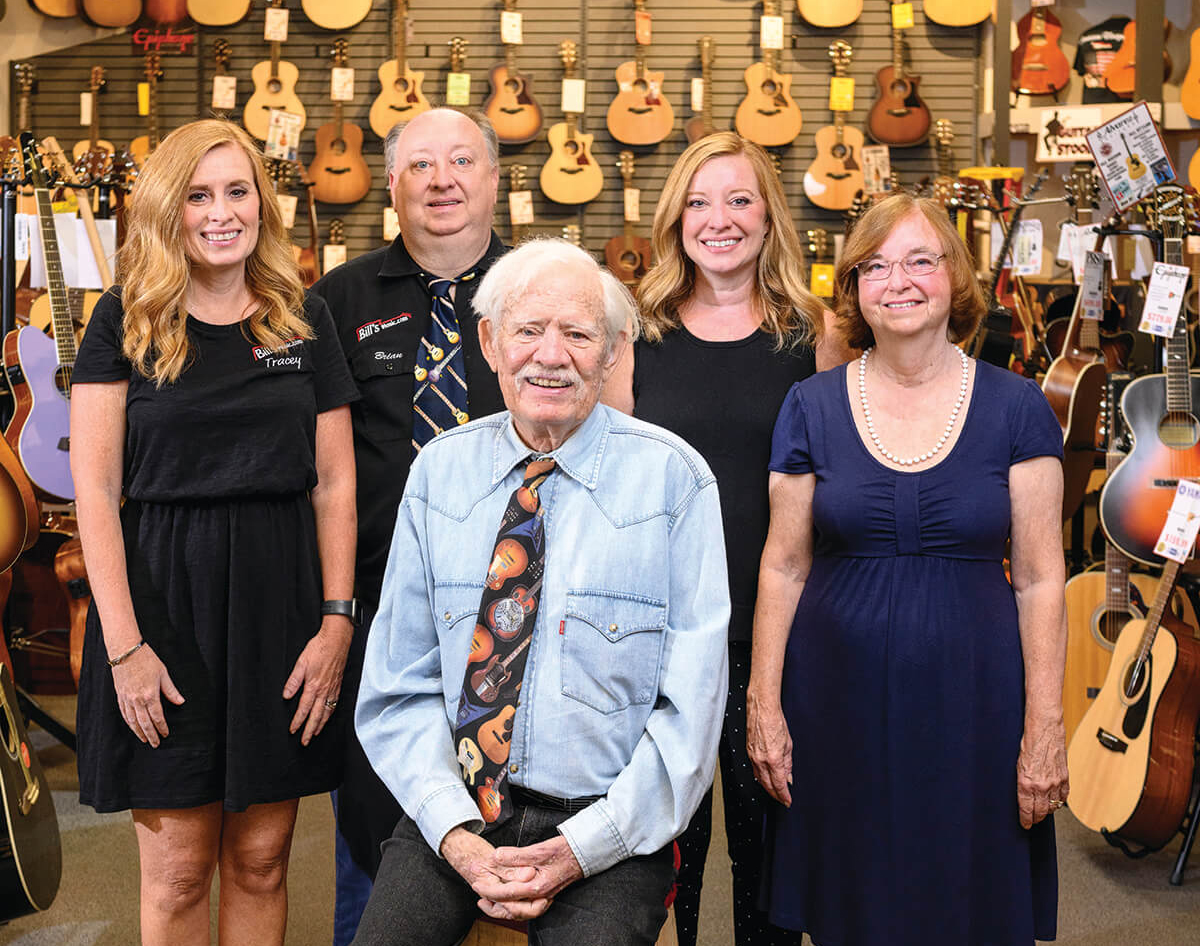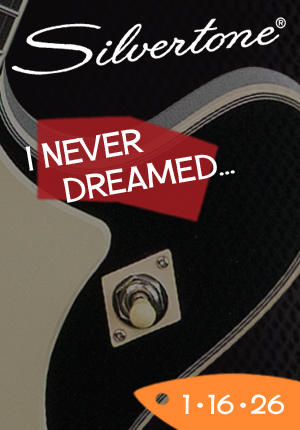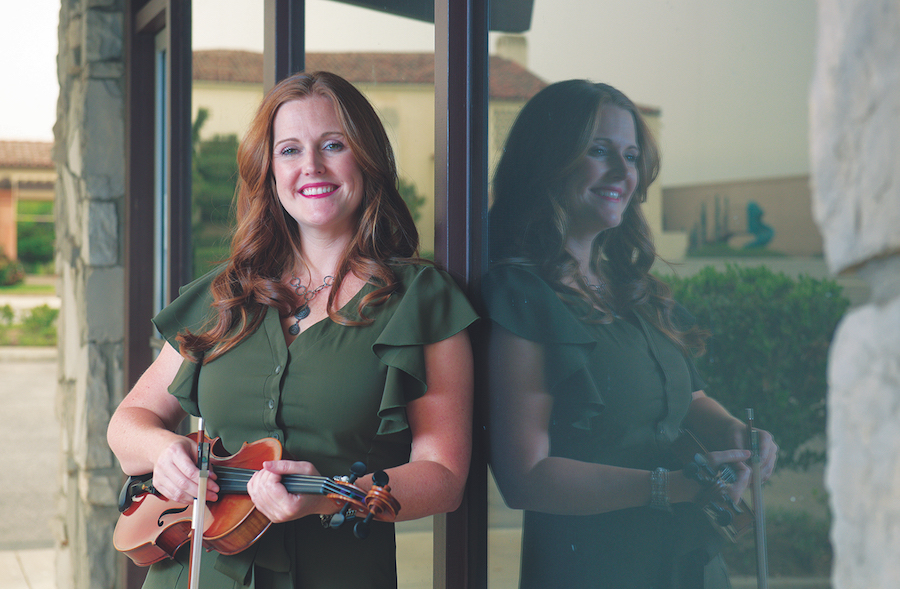
Nick Rail Music President and Owner Laura Penrose
This September, Laura Penrose hit her one-year anniversary as president and owner of Nick Rail Music, a full-service music store specializing in band and orchestra instruments with seven locations throughout southern California. She had no way of knowing it in fall 2019, but she became a business owner on the cusp of extremely challenging circumstances. “It’s been a bumpy road,” she said.
Last year ended smoothly for Laura and her husband Tom Penrose, who serves as the company’s vice president and director of operations, and her staff of roughly 50 employees. “Everything was just peaches and cream,” she said. “And January NAMM was great.”
But 2020 threw its first huge curveball at Nick Rail Music during the event. On the last day of The NAMM Show, the company’s Director of School Services Lucky Harms died of a heart attack. “He was a key employee and just crucial to the infrastructure of the company, where he was doing huge amounts, millions and millions of dollars of school bid deals across the country,” Penrose said.
Penrose was in the process of developing a backup for Harms at the time. The week before, she had promoted one of her managers, Harrison Kirk, to acting as Harms’ “sidekick” to grow into his job role. “He had a week under his belt before Lucky passed away,” she said. “That was a pretty substantial hit, but Harrison jumped in with both feet. There was a super-steep learning curve for that position, but he’s doing great.”
Then came the second curveball, one that would grind the entire world to a halt. Penrose described her initial impressions of the pandemic going into March: “The coronavirus had kind of been talked about a little, but people were [saying], ‘Yeah, it’s gonna just be a blip, no big deal.’”
As we now know, it turned out to be more than that. On March 17, California Governor Gavin Newsom shut down the state. Nick Rail Music furloughed its staff and closed for three weeks.
When Newsom declared that essential businesses could reopen, the company qualified because it repairs personal property, so it reopened with a skeleton crew, applied for and received a PPP loan, started doing curbside delivery and then reopened its showroom floors in June. “So it was a little bit of a rough patch,” Penrose said. But, for a store so active in school music programs, further challenges lay ahead.
Pretty Vicious
School music programs are part of what inspired Nick Rail — who agreed to work with his former company as a consultant for a year after selling it to Penrose — to start the company in 1986. Rail said the company was founded based on “a deep-seated need to be of service in the community, coupled with a passion for music and gratitude for the opportunity to join band when I was nine years old and all the good things that came along with that, wanting to give that opportunity to other kids.”
Rail termed the impact coronavirus has had on school music programs as “pretty vicious,” though pointed out that he’s no longer in a position to examine music stores’ balance sheets. “But I talk to enough other people in the industry and so forth that I know that, just as a general rule, rental programs are down 50, 60, 70, 80% across the board,” he said. “It’s tough.”
During the initial coronavirus quarantine, the thinking at Nick Rail Music was that fall’s school music sales would offset the financial loss it saw from the three-week closure and restricted sales that followed. “At the beginning, we all thought it wasn’t going to last very long — we’ll be fine,’” Penrose said. “Any revenue we lost over the summer, we would make up during our fall rush.”
But COVID-19 stuck around and hit school music programs hard. As Penrose put it, “zero school” meant “zero activities.” This posed challenges to Nick Rail Music’s bottom line. “What it means is that we don’t get nearly as many rentals as we typically would in a given school year,” said Laura’s husband Tom. “Kids either aren’t starting or continuing band. So, we don’t get the rentals, but then we also don’t get the step-up sales as the kids progress. We’re getting hit in two main areas — rentals, but then also on the retail side.”
Inherently Germy
Laura does identify some positives here. First of all, increased awareness of instrument hygiene is adding income for Nick Rail Music. “Over the summer, we were so busy at all of our stores cleaning way more instruments than we’ve ever seen before, over 1,500 school instruments,” Penrose said. “Where normally schools just bring the stuff in that’s broken, now they were bringing in entire fleets for cleaning. FEMA donated a bunch of money to schools for specific cleanings. They were treating it like a natural disaster.”
In Penrose’s view, people used to view the potentially unsanitary nature of school music programs as something that came with the territory, and that’s no longer an option today. “Band is inherently germy, and people just accepted the fact that there would be spit and nastiness in the band room,” she said. “But now people are more conscientious and are doing something about it.” This means schools fully cleaning instruments after a school year or perhaps after each semester, and not allowing students to share instruments, particularly not mouthpieces.
Penrose notes that teachers have, of course, really stepped up during this difficult time. “Music teachers have been incredibly resourceful and creative, and I’m amazed at the things that they have put together to help make this successful,” she said. “Everyone knows the importance of music, especially for kids, and these teachers are having this huge challenge put in front of them. Some of them don’t even have the support from their districts that they need to make it successful, but they’re doing it.”
Penrose feels it’ll take time — specifically two years — for school music programs to rebound. “Even if schools go back hybrid in January, like some schools are talking about, or if they wait until the very beginning of next year, it’s going to take another year to rebuild programs and get people comfortable with group performances, audiences, things like that,” she said. “I think eventually it’ll get back to just how it was before, or at least super close.”
Threw A Monkey Wrench
Penrose first became interested in buying Nick Rail Music when she “heard through the music industry grapevine” that Rail was quietly looking to sell the company. She had previously worked at Maple Leaf Strings, Summerhays Music Center and Sam Ash Music, specializing in B&O. She got in contact with Rail, applied for and received an SBA loan, purchased the company, and she and Tom moved from Utah to California, her home state. She said people ask her why she did all this and she explains that she simply wanted to be her own boss.
But Penrose wasn’t done yet. Soon after assuming ownership of Nick Rail Music, she learned that the music store in her hometown of Camarillo, California, had lost its lease. She acted quickly to sign a lease on the location in November, taking possession of it in March, expanding her company into a seventh location — Penrose Strings by Nick Rail Music, which exclusively sells orchestral strings and accessories.
Of course, March 2020 turned out to be far from an ideal time to break ground on a new store.
“As the coronavirus hit and threw a monkey wrench in the works, we really couldn’t go back on the plan,” Tom said. “I think it’s going to be a little tough to get going, but to some degree that happens with any new store.”
Laura explained that renovating the store was complicated by the pandemic. “We couldn’t get anything,” she said. “I would order flooring, and they’d be like, ‘Oh, it’s delayed six months,’” she said. “I had a whole big cabinetry built out, but then they couldn’t find the right stain. Even just buying the cash register, no one had any in stock or if they did have them in stock, everyone was closed.”
Regardless, the Penroses got there, opening Penrose Strings in early August. Penrose said the store has been very much embraced by its community. “Everyone was shocked that the previous music store lost their lease, but when people come in and see how many improvements we have made, [they] are so excited,” she said.
Looking back on her first year in business, Penrose said that it’s been advantageous to go into her role so fresh. “A lot of people have been reaching out to me [asking if] since this is my first year of business ownership, do I feel like I’m at a huge disadvantage?” she said. “But I don’t have any preconceived notions of how things should be. So, if we get a win, that’s great. If we don’t, well, what’s next?”
So, for Penrose and Nick Rail Music, the future is whatever they choose to make it. “If we can maintain a sense of optimism and be creative with the services that we offer and the way that we’re handling the current crisis, I don’t see why we wouldn’t continue being successful,” she said. “Everyone in this company is too invested to let this fail.” MI

